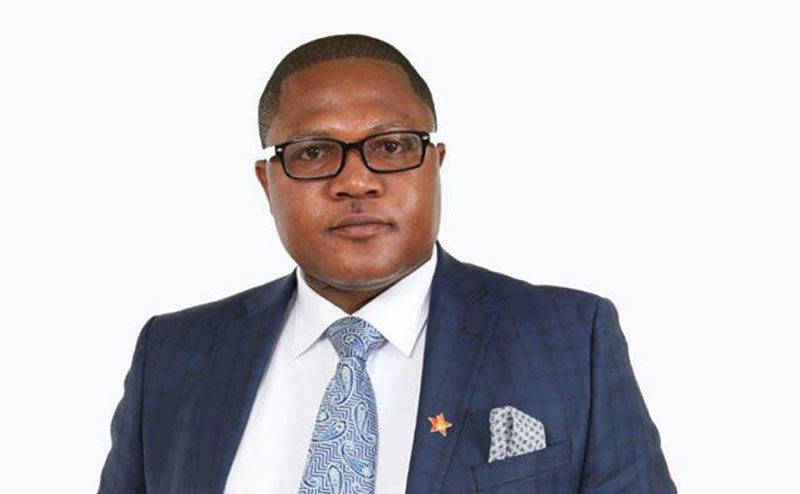
MTHANDAZO NYONI FINANCE minister Mthuli Ncube last week announced measures to increase revenue to the fiscus, but economic analysts say some of the interventions will push the majority into poverty.
The Treasury proposed to increase pay-as-you-earn (PAYE) tax-free threshold from ZW$300 000 (US$683) to ZW$600 000 (US$1 366) per annum with effect from this month.
It also proposed an adjustment of the tax bands to end at ZW$12 million (US$27 335) from the current ZW$6 million (US$13 667) per annum as well as a tax-free bonus threshold from ZW$100 000 (US$228) to ZW$500 000 (US$1 139), with effect from November.
This comes as Zimbabwe’s annual inflation shot up 256,9% last month, up from 191,6% recorded in the previous month.
However, economic analyst Victor Bhoroma said this does little to help the workers in both the civil service and private sector as disposable incomes were being eroded by inflation.
“The least the government could do was to peg the tax-free threshold at ZW$80 000 (US$182) per month to improve consumer confidence and boost effective demand in the economy,” he said. “The bonus tax-free threshold is quite welcome for the few that earn bonuses provided inflation slows in the last half of 2022.”
The Zimbabwe Coalition on Debt and Development (Zimcodd) said while commendable, the tax-free threshold was insufficient in addressing livelihood concerns without additional measures, such as zero-rating value-added tax (Vat) and scrapping or reducing the intermediary money transfer tax (IMTT) of 2% tax.
Economist Stevenson Dhlamini said the tax-free threshold is still low compared to the inflation rate now pegged at 256,9% and also given that there has been no review of salaries for a long time.
- Chamisa under fire over US$120K donation
- Mavhunga puts DeMbare into Chibuku quarterfinals
- Pension funds bet on Cabora Bassa oilfields
- Councils defy govt fire tender directive
Keep Reading
“The tax bracket of ZW$50 000 (US$113) still does not cushion workers. Instead, it implies that if there is a second round of wage negotiations, workers will simply be pushed into higher tax brackets,” he said.
“This does not stimulate consumptive spending and improve the welfare of the civil sector or the private sector. So, adjustment of the tax band to ZW$12 million from ZW$6 million per annum, is being overtaken by events because inflation is simply going up at a high rate.
“So this is a mild adjustment compared to the volumes of transactions. It’s just simply increasing the tax burden on the economic agents,” Dhlamini said.
Economist Alice Chenjerai said revenue enhancement measures were critical as the economy was still recovering from the Covid-19 related stress.
She said any such measures, particularly through taxation, must be carefully calibrated to ensure that they do not create any disincentives against investment, consumption and production process.
“The best way to enhance revenue would be to focus on measures to expand the tax base rather than increasing rates. Measures, such as reducing the Vat threshold and the personal income tax are vital,” Chenjerai said. “Another measure that can be introduced is the indexation of alcohol and tobacco. It means the tax rate is increased in line with the growth rate of nominal GDP.
“Therefore, the tax incidence will increase in line with affordability and thus ensure a steady stream of tax enhancements from alcohol and tobacco,” she said.
In his budget, Ncube proposed to increase the platinum royalty rate from 2,5% to 5% with effect from January next year. This royalty rate will also apply to the lithium sector.
Bhoroma said by reviewing the platinum royalty rate, the government was looking at extra revenue streams in line with regional practices on taxing the extractive sector.
“This will not make the miners happy but I believe they are also getting good value from the rally in PGM prices on the world market,” he said.
Dhlamini said the increase in royalties has a bearing on the platinum sector’s profitability, which is a high cost industry.
On the other hand, he said, it is a “significant move that shows that the government has turned to domestic resource mobilisation as a source of funding expenditure instead of relying on the expensive multilateral institutions for their expenditure”.
Dhlamini said the rebate on equipment for scientific research was welcome given that most tertiary institutions have innovation as part of their core mandate.
“That rebate will go a significant way in improving innovation amongst, not only tertiary institutions, but even companies that would want to invest in research and development,” he said.
Bhoroma said the move would spur scientific research in the country considering the fact that Zimbabwe has very limited investment in research and development.
“It is an area which needs a holistic approach to align with other African countries and bring the best out of Zimbabwean science, technology, engineering and mathematics skills that are leaving the country in hordes and droves,” he said.
Ncube also provided Vat registered operators with the option to pay duty in foreign currency to facilitate offsetting of output and input tax in the same currency.
According to Bhoroma, this was largely expected because the Treasury is looking at improving its foreign currency coffers and meet core and non-core expenditure.
However, he said, this calls for the government to institute a free market-determined rate on foreign exchange to ensure that businesses are not indirectly taxed due to exchange rate disparities that lead to foreign exchange losses.
Dhlamini said this will aid the accounting of transactions for most companies by giving them that particular option. It makes accounting and reporting on financial statements easier.
Economist Justice Dzama said the issue of incorporating the US dollar component in the Vat of retailers would enable the government to collect the US dollar component from the shops without tax evasion.











